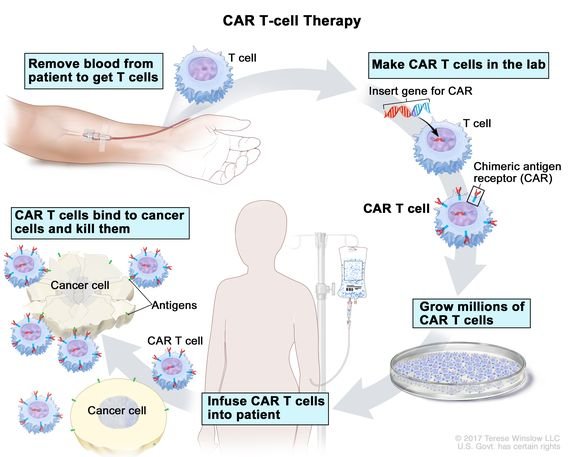Homegrown gene therapy is a new and promising approach to treating cancer. It involves modifying a patient’s cells to attack their cancer cells. This type of gene therapy is still in the early stages of development. Still, it has the potential to be a more effective and less toxic treatment for cancer than traditional therapies.
There are two main types of homegrown gene therapy for cancer:
CAR T-Cell Therapy:
This type of therapy involves removing T cells from a patient’s blood. The T cells are then modified in the laboratory to express a chimeric antigen receptor (CAR). A CAR is a type of protein that helps T cells recognize and kill cancer cells. Once the T-cells have been modified, they are infused back into the patient’s blood. The CAR T-cells then attack the patient’s cancer cells.

Viral vector gene therapy:
This type of therapy involves using a virus to deliver a gene into a patient’s cells. The gene that is delivered can code for a protein that can kill cancer cells or for a protein that can help the immune system fight cancer.
Homegrown gene therapy has the potential to be a more effective treatment for cancer than traditional therapies because it can target cancer cells more specifically.
Traditional therapies, such as chemotherapy and radiation therapy, can damage healthy cells as well as cancer cells. Homegrown gene therapy can also be less toxic than traditional therapies because it is tailored to a patient’s individual cancer.
Homegrown gene therapy is still in the early stages of development, and several challenges need to be overcome before it can become a widely used treatment for cancer.
Another challenge is that it can be difficult to manufacture homegrown gene therapy products on a large scale.
Despite these challenges, homegrown gene therapy is a promising new approach to treating cancer. With continued research, homegrown gene therapy has the potential to revolutionize the way cancer is treated.
A New Hope for Humankind CAR-T cell therapy
The President of India, Smt. Droupadi Murmu launched India’s first home-grown gene therapy for cancer at IIT Bombay today (April 4, 2024).
Speaking on the occasion, the President said that the launch of India’s first gene therapy is a breakthrough in our battle against cancer.
As this line of treatment, named “CAR-T cell therapy”, is accessible and affordable, it provides new hope for the whole of humankind. She expressed confidence that it will be successful in giving new lives to countless patients.
The President said that CAR-T cell therapy is considered to be one of the most phenomenal advances in medical science.
It has been available in developed nations for some time, but it is extremely costly and beyond the reach of most patients around the world.
She said that it is also an example of the ‘Make in India’ initiative; a shining example of the ‘Atmanirbhar Bharat’.
The President was happy to note that India’s first CAR-T cell therapy is developed through collaboration between the Indian Institute of Technology Bombay and Tata Memorial Hospital in association with industry partner ImmunoACT.
Articles to Read:

